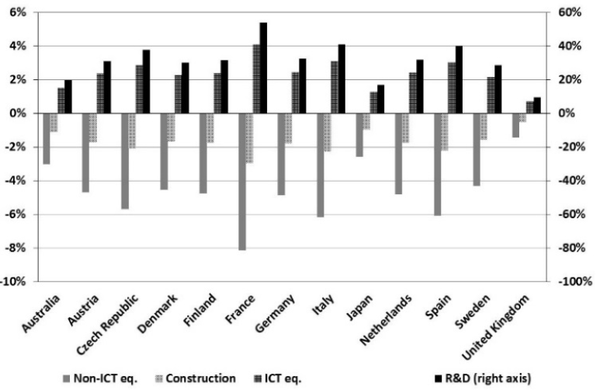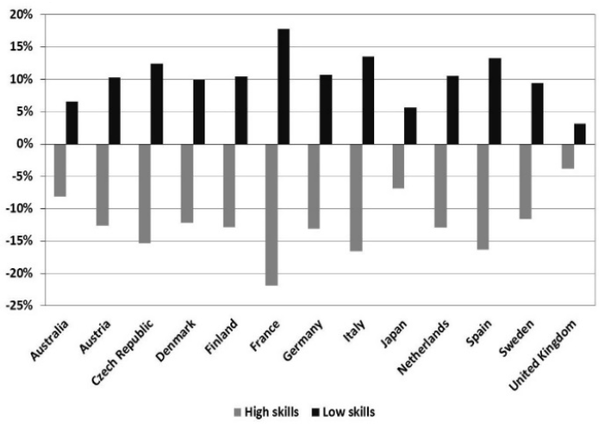Economie et Statistique / Economics and Statistics n° 503-504 - 2018 Employment Protection Legislation Impacts on Capital and Skill Composition
THE ARTICLE ON ONE PAGE
Key question
In a context of globalization, it is essential to explore the effects of labour market regulations, more precisely Employment Protection Legislation (EPL), on the combination of production factors for anticipating the many effects of EPL reforms. The originality of our paper is to study capital-labor substitution for four components of total capital stock (R&D, ICT, Non-ICT equipment, and Construction) and two components of labor (low and high skills). Another original contribution is to investigate whether the impact of EPL differs depending on the intensity of use of labour input and the industry openness to trade.
Methodology
We assume a symmetric approach for each production factor, using a country-industry panel dataset of 14 OECD countries, 18 manufacturing and market service industries, over the 20 years from 1988 to 2007.
Main results
A change in EPL impacts differentially the components of capital on the one hand and the labour skill components on the other:
- With a less restrictive EPL, the capital-to-labour ratio would globally decrease but it would increase for ICT and for R&D. It would also work at the advantage of low-skill workers’ employment relatively to high-skill workers;
- The impact is slightly reduced with increased openness for R&D capital and high-skill labour, but not for ICT capital. These results confirm that less restrictive EPL can make organizational change and risk taking easier on globalized markets;
- The expected impact of a reduction in EPL to the US level in 2013 (the last year available), based on our main estimation results, appears large for several countries.
graphiqueLong-Term Impact of Adopting the US EPL in 2013


Message
This illustrative policy simulation suggests that structural reforms weakening employment protection legislation could have a favorable impact on firms’ ICT and R&D investment and on hiring low-skill workers in a number of countries. Loosening the EPL would require a very ambitious reform programme in these countries, and the simulated impact is a long-term one, but this simulation confirms that the potential gains from the implementation of ambitious labour market programmes could be sizeable.
Article on one page (pdf, 62 Ko )



